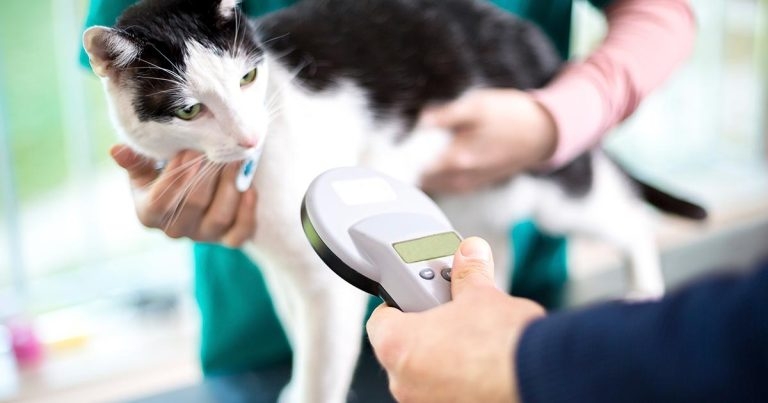6 Dec 2021
Defra has announced that cat owners in England will have to ensure their pet is microchipped before it reaches the age of 20 weeks or receive a fine of up to £500.

Image © Lucky Business / Adobe Stock
All cats in England will be required to be microchipped under new rules announced by the Government.
Defra has announced that cat owners will have to ensure their pet is microchipped before they reach the age of 20 weeks or receive a fine of up to £500.
Owners must also ensure that their contact details are stored and kept up to date in a pet microchipping database. The owners of cats found without a microchip will be given 21 days to have one implanted.
The new microchipping rules follow a Government call for evidence and consultation on the issue, in which 99% of respondents expressed support for the measure in a survey conducted by Cats Protection.
Animal welfare minister Zac Goldsmith said: “Cats are much-loved parts of our families and making sure that they’re microchipped is the best possible way of making sure that you are reunited with them if they are ever lost or stolen.
“These new rules will help protect millions of cats across the country and will be brought in alongside a range of other protections we are introducing under our Action Plan for Animal Welfare.”
Earlier this year the Government also worked closely with the RCVS to introduce new guidance that requires vets to scan the microchips of healthy dogs to help ensure they are not euthanised unnecessarily.
In addition, the Government is also carrying out a review of the regulations on dog microchipping and the related microchipping database systems to consider whether improvements can be made.
The new cat microchipping rules will be implemented once this review has been completed to ensure that any changes to the operation of the microchipping regime are brought in at the same time as the new microchipping rules for cats.
Cats Protection’s head of advocacy and government relations Jacqui Cuff said: “Every day we see how important microchipping is for cats and for the people who love them – whether it’s reuniting a lost cat with their owner, identifying an injured cat or helping to ensure an owner can be informed in the sad event that their cat has been hit and killed by a car.
“Microchipping is by far the most effective and quickest way of identifying lost cats, and can help ease the pressure on rescue charities like Cats Protection. Without a microchip, a lost cat will most likely end up being rehomed to a new home as there is often no trace of their original owner.”
The commitment to microchipping is part of a wider Government effort to build on our existing world-leading standards and follows a number of recent announcements aimed at improving companion animal welfare, including tackling puppy smuggling in the Animal Welfare (Kept Animals) Bill and introducing a new pet abduction offence to crack down on theft.
Animal welfare is a devolved matter, and Defra confirmed the new microchipping law will apply to England only.